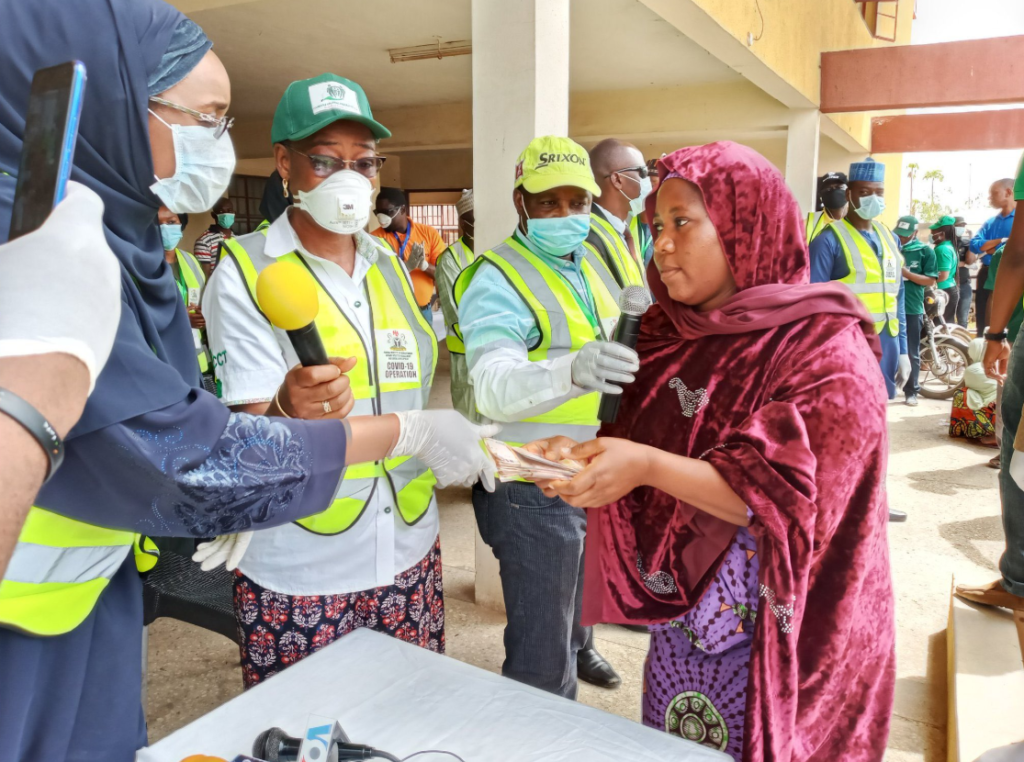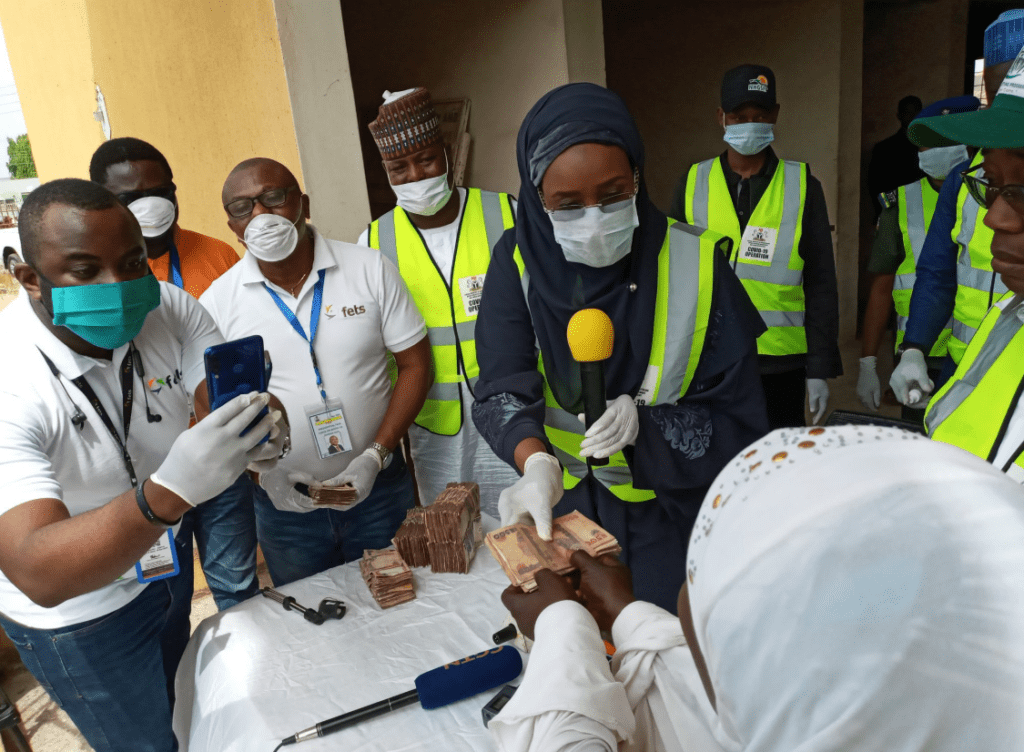News
Nigerian Govt Pays N20,000 to 5,000 Households In Abuja
The Federal Government on Wednesday disbursed N20,000 under its Conditional Cash Transfer scheme to 5,000 beneficiaries in Kwali Area Council of the Federal Capital Territory, Abuja.

The Minister of Humanitarian Affairs, Disaster Management and Social Development, Sadia Umar-Farouq, supervised the disbursement.
Henry Ayede, the spokesperson for the cash transfers programme office, mentioned that the N20,000 covers four months’ stipends for the beneficiaries from January to April.
Mrs Umar-Farouq said the disbursement was one of measures authorised by President Muhammadu Buhari to help citizens cope with the fallout of coronavirus.
Other measures include a moratorium on repayment of certain Federal Government-funded facilities to the Nigerian public.
President Buhari on Sunday had ordered the three-month moratorium on government-funded loans from institutions such as the Bank Of Industry and Nigerian Export-Import Bank to beneficiaries of schemes such as TraderMoni, MarketMoni and FarmerMoni beneficiaries.
The gesture is to provide relief for the impact of COVID-19 on the Nigerian economy.
The Conditional Cash Transfer (CCT) programme was introduced in 2016 as part of President Buhari’s Social Investment Programme (SIP). It involves payment of N5,000 monthly, paid bi-monthly, to the poorest Nigerians, mostly in rural communities.
According to the minister, the disbursement is to help in reducing the effect of the lockdown ordered by the president in Abuja and Lagos over the COVID-19 pandemic.
But Ms Farouk, during the flag off said the Federal Government would be giving out N20,000 per recipient in Abuja for the next four months starting from March.
“We have directed immediate cash transfer to the poorest and most vulnerable households in the country,” she said.

“Because of this COVID-19, the vulnerable groups have to expand, because we are aware that there are people who live on daily wage, so we are also going to look at those groups of people to see how we can get this food relief intervention to them in this period.”
The programme’s spokesperson, Mr Ayede, said: “The federal government has not paid the beneficiaries from January till March, but following the president’s order on Sunday, the ministry decided to pay in April in view of the lockdown directives.”
The National Cash Transfer Office (NCTO) aims at “reducing poverty, preventing the vulnerable households from falling further down the poverty line and building their resilience to withstand shocks.”
According to a 2019 report by the NSIP, about 297,973 poor households in 20 states had already been receiving the cash transfers.
The CCT uses a model called Community-Based Testing to identify the poorest households in a given community; then after identification, the details are uploaded into the National Social Register, where the NSIO mines from to pay the beneficiaries.
As part of efforts to the get many Nigerians out of vulnerability and poverty, the Federal Government In December 2017 signed a Memorandum of Understanding MOU with Switzerland on the return and monitoring of the $322m Abacha loot.
The fund is to be used on the National Social Investment Programme (SIP) Conditional Cash Transfer (CCT) that began in December 2016.
The federal government also obtained $500 million credit from the World Bank to run the initiative for six years from 2016 to 2022. Another source of the fund was the N500 billion National Social Investment Programmes (NSIP), captured in the Federal Government budgets since 2016.
The NSIP was last year moved away from the office of the vice-president, Yemi Osinbajo, to the newly-established Ministry of Humanitarian Affairs, Disaster Management, and Social Development, headed by Mrs Umar-Farouq.






